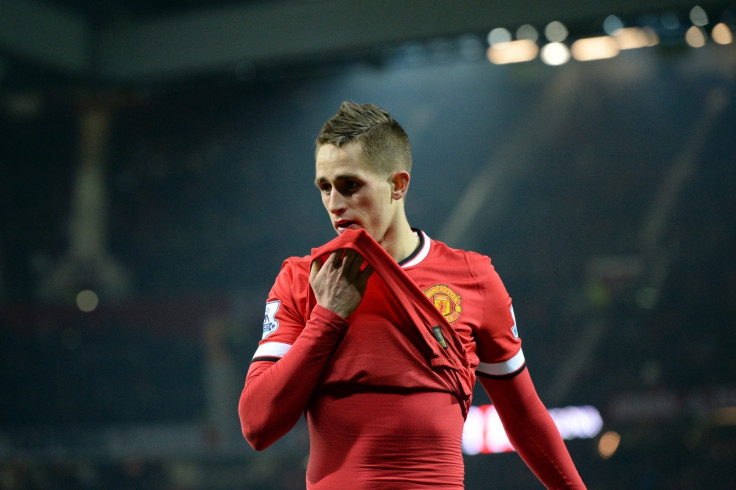Manchester United summer spending offset by £17.3m Januzaj and sell-on windfall

KEY POINTS
- Ed Woodward has confirmed the sum generated through the Belgian's exit and "various" sell-on clauses.
- Reports suggest that the Red Devils profited from Michael Keane's move to Everton and Danny Drinkwater's switch to Chelsea.
Manchester United banked £17.3m ($22.8m) over the summer thanks to the sale of Adnan Januzaj to La Liga outfit Real Sociedad and sell-on fees generated by big-money transfers for two former youth products in Michael Keane and Danny Drinkwater, it has emerged.
After joining the Red Devils' academy as a teenager, Januzaj made his first-team bow during the disastrous reign of David Moyes, signed a bumper new five-year contract and even inherited Ryan Giggs' old number 11 shirt before eventually falling out of favour under Louis van Gaal.
The Belgium international saw a loan move to Borussia Dortmund terminated midway through the 2015-16 campaign and similarly failed to impress last season after being dispatched by Jose Mourinho for a stint at doomed Sunderland, where he reunited with Moyes.
The writing was very much on the wall for Januzaj after he was omitted from the squad for a pre-season tour of the United States and in July he was sold to Real Sociedad in a £9.8m deal said to include a buy-back clause.
Since moving to Anoeta, the 22-year-old has scored one goal in 11 appearances across all competitions.
According to the BBC, executive vice-chairman Ed Woodward, who held a conference call with investors after United's latest financial results revealed that first quarter revenue had risen by 17% to £141m alongside an operating profit of £15.2m, was referring to Keane and Drinkwater when he spoke of money made from "various sell-on fees".
Keane, along with twin brother Will, began his career at United and made two appearances for the club in addition to being sent for Football League spells with Leicester City, Derby County and Blackburn Rovers before a final loan stint at Burnley was converted into a permanent deal in January 2015.
The centre-back was approached over a return to his boyhood club this summer after helping Sean Dyche's side to establish themselves back in the Premier League and earning his first international caps for England. However, he opted to join Everton in a deal that could reach a club record-equalling £30m.
Drinkwater also progressed through the youth ranks at Old Trafford, yet never featured at senior level before being sold to Leicester in 2012 following loans to Cardiff City, Watford and Barnsley. The injury-prone central midfielder won the title during his five years in the East Midlands before eventually joining Chelsea for a £35m fee on summer deadline day.
The only reference to United's January plans during Thursday's (16 November) conference call came with a question about the club's net player capital expenditure, meanwhile.
"When we announced our fourth quarter results, which was September, that was the end of the transfer window and we gave a figure that was £95m, that was the net player CAPEX at that point for the year of 17/18," chief financial officer Cliff Baty was quoted as saying by the Manchester Evening News.
"We don't guide on that figure because things can obviously move but that's the actual position as we are at now before we get into the transfer window in January and do any activity or not."






















